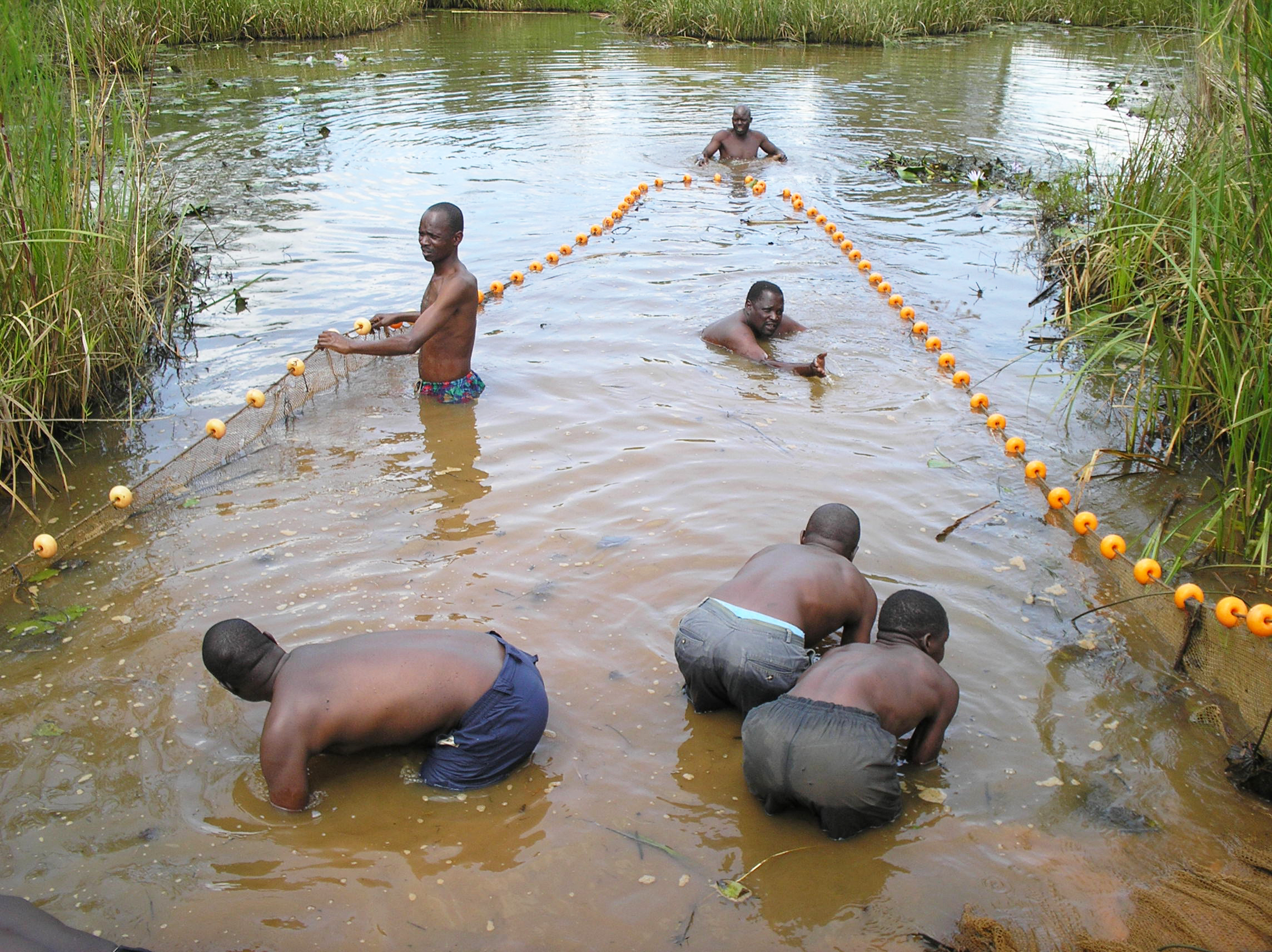
Almost 46 percent of the world’s total fish production in 2018 came from aquaculture, up from 25.7 percent in 2000. The sub-sector is also a growing employer across the world. It employs over one-third of all the global work force in fisheries and aquaculture—35 percent in 2018, up from 17 percent in 1990. It is expected to contribute 48 percent of global fish production by 2030. Investor interest in aquaculture is increasing in many countries, especially in Asia.
Such economic growth must be matched with socio-environmental concerns. New trends in aquaculture activities need to be identified. Occupational safety and health issues need to be addressed, while accounting for women’s work, social development and gender relations. Crucially, any threats to fishing communities from aquaculture operations, including their tenure rights, must be addressed. There is also a need to outline responsible practices and appropriate forms of small-scale aquaculture.
ICSF’s aquaculture programme will look at how the sector can contribute to Sustainable Development Goals (SDG) by 2030. How to better understand this growth and its implications. How to secure local community rights over water bodies. How to build capacities, use local species that contribute to food security.
In 2010 ICSF and Kolkata’s Inland Fisheries Society of India (IFSI) held a workshop titled ‘Small Indigenous Freshwater Fish Species: Their Role in Poverty Alleviation, Food Security and Conservation of Biodiversity’ to bring together stakeholders. It highlighted the role of small indigenous freshwater fish species (SIFFS)—of unique nutritional benefit if cooked in traditional ways—in rural food and livelihood security, as also in conserving biodiversity. Their socioeconomic and cultural relevance, how to enhance access, especially of women, to better income and nutrition.
ICSF will launch a new programme in 2020 to study India’s aquaculture systems to promote sustainable development and a human rights-based approach.

Aquaculture is poised for boom all over the world especially in countries like India where it is traditionally practised. ICSF launched a new programme in 2020 to study India’s aquaculture systems to promote sustainable development and a human rights-based approach. India’s Neel Kranti Mission (Mission Blue Revolution) aims to triple fish production, especially from aquaculture.
Aquaculture at Crosswaters delves into the dynamic emergence of aquaculture in India, with a focus on the states of Andhra Pradesh and West Bengal. It highlights significant advancements in the...
A Thousand Hands: Story of Aquafarm Workers tackles the often-overlooked issue of labour within the aquaculture industry, which has received limited attention in India. We hope this documentary will ignite...
The documentary film Unseen Faces, Unheard Voices showcase the impacts of the boom in aquaculture on women in the floodplain regions of the Indian coastal state of West Bengal. Shot...
A Case for a Human Rights-based Approach to Indian Aquaculture Systems by Neena Elizabeth Koshy examines the void & facets if aquaculture is to become sustainable & is able to...
This is the report on the workshop on “Small Indigenous Freshwater Fish Species: Their Role in Poverty Alleviation, Food Security and Conservation of Biodiversity”. This workshop was organized as a...
This study commissioned by International Collective in Support of Fishworkers (ICSF), explores how developments in the aquaculture sector could affect the social, economic, cultural and political rights of these communities,...
Hundreds of inland fishermen, often the more marginalized amongst the fishworker communities in the affected countries, have been overnight deprived of their incomes, as consumers began to totally reject the...
The Guidelines for Sustainable Aquaculture (GSA) were prepared at the request of Members in an inclusive, transparent and participatory manner under the guidance of the Sub-Committee on Aquaculture of the...
The Twelfth Session of the Sub-Committee on Aquaculture of the FAO Committee on Fisheries was held in Hermosillo, State of Sonora, Mexico, from 16 to 19 May 2023. The Sub-Committee...
This report is the culmination of three years of research and investigations into the Indian shrimp sector, examining evidence of forced labor, living and working conditions for shrimp supply chain...
The 34th Session of the Committee on Fisheries (COFI) highlighted the significance of inclusive and sustainable ocean economies to the 2030 Agenda for Sustainable Development. In aquatic food value chains,...
This document provides guidance for FAO Members when completing the questionnaire on the implementation of Article 11 of the Code of Conduct for Responsible Fisheries (CCRF). Download
(ii) In accordance with Rule of Procedure 48.3, IPHAB, as a primary Subsidiary Body of IOC, is required to report to a governing body on its sessions. (iii) The IOC...
The Sub-Committee on Fish Trade was established by the Committee on Fisheries to serve as a multilateral consultation forum for discussions on the international trade of fisheries and aquaculture products....
From 16 to 19 May 2023, the twelfth Session of the Sub-Committee on Aquaculture of the FAO Committee on Fisheries (COFI:AQ) was held in Hermosillo, State of Sonora, Mexico. The...
This document outlines the process FAO has undertaken to develop the first section of the FAO Guidance on Social Responsibility in the Fisheries and Aquaculture Value Chains (FAO Guidance), covering...
This document provides an overview of the efforts made towards implementing the recommendations of the 18th Session of the COFI Sub-Committee on Fish Trade (COFI:FT) involving the questionnaire on Article...